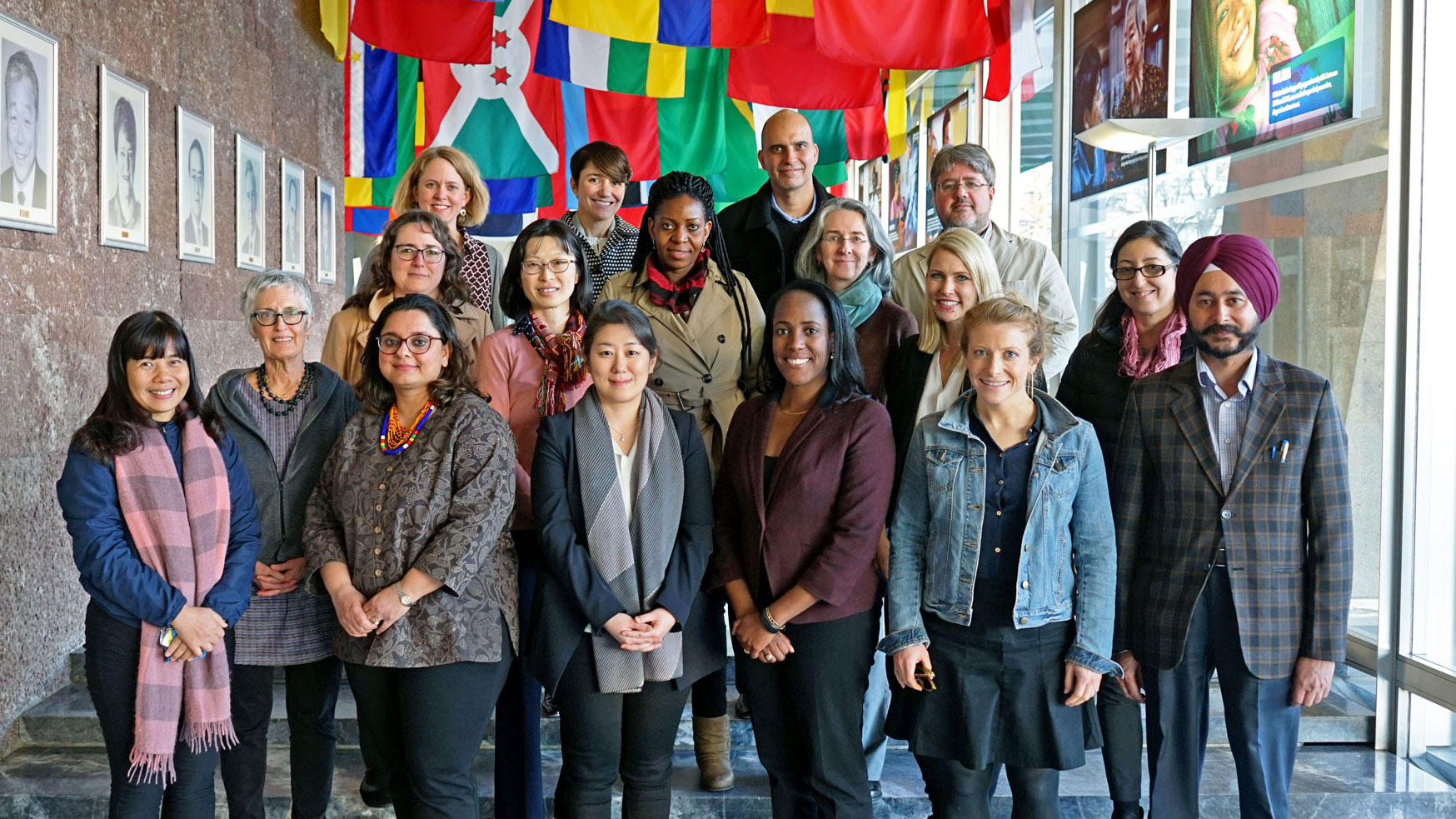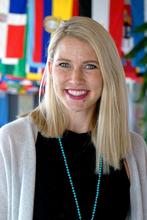
Interdisciplinary EIO 2019 participants at the World Health Organization in Geneva, Switzerland
CAHFS teams up with intergovernmental organizations to solve global issues
The Center for Animal Health and Food Safety (CAHFS) relaunched the Engaging Intergovernmental Organizations (EIO) program in March, starting off its eleventh year by taking a new multidisciplinary approach to tackling the most pressing global public health issues.
The week-long program took participants to Paris, Geneva, and Rome, where they visited the headquarters of the World Organisation of Animal Health (OIE), World Health Organization (WHO), World Trade Organization (WTO), and Food and Agriculture Organization of the United Nations (FAO). The 18 professionals included university faculty (nominated by deans of participating schools and colleges), government officials, and intergovernmental employees. Participants represented multiple disciplines including policy, medicine, nursing, public health, animal health, and environmental health, as well as economics and business. Together, they brought a One Health perspective to antimicrobial resistance, food safety, zoonotic diseases, and international trade.
Kaylee Myhre Errecaborde, DVM, policy PhD candidate, instructor, and director of the CAHFS policy unit, co-designed the program with CAHFS Director Andres Perez, DVM, PhD. The team worked closely with Carissa Slotterback, PhD, associate dean of the University of Minnesota Humphrey School of Public Affairs, to design a curriculum that would both facilitate networking among key global leaders and teach new skills for effective collaboration between the private, academic, and intergovernmental organizational sectors.
“One of the biggest takeaways was that participants realized that these intergovernmental organizations are developing important policies, but there’s a large gap between creating and actually acting upon these policies,” says Errecaborde. “The multidisciplinary approach helps researchers understand how their work fits within this global framework.”
“A program like EIO is important because it has helped me ‘connect the dots’ regarding the activities we implement as the One Health Central and Eastern Africa (OHCEA) network,” said Irene Naigaga, PhD, a participant of the 2019 program and regional program manager of OHCEA. “Coming to this training and having this experience has helped me appreciate the relevance of the work we do at the national and regional level in informing the frameworks at the global level.”
Errecaborde, Perez, and Slotterback worked with the Office of the Vice President for Research and the Global Programs Strategy Alliance at the University of Minnesota to sponsor the first ever EIO Seed Grant to be awarded to winning participants following the event. Participant-led innovation teams at EIO were invited to submit proposals on pressing topics, including emerging infectious diseases, antimicrobial use and resistance, and food safety and security. “We didn’t want all that new knowledge to end when the week was done, which is why we created the grant,” says Errecaborde. “We felt there was a real opportunity coming out of this program to form more partnerships not only across U of M departments, but also externally in the private or government sectors.”
In the end, the $10,000 grant has been awarded to one collaborative proposal supported by the full EIO 2019 team, led by Dr. Cheryl Robertson, PhD, MPH, RN, of the School of Nursing. The project, titled "Partnering for Resilient Communities: Sustainable Global Demonstrations Sites," aims to strengthen research and partnerships with global researchers through the development of community-led field sites. The seed grant will initially fund exploratory meetings in Minnesota and Uganda to establish partner needs and develop the project design for a pilot site in East Africa.
Grant recipients will work directly with communities in East Africa, Latin America, or Southeast Asia through these field sites to foster long-term, collaborative projects among U of M faculty and regional researchers, practitioners, students, and faculty. As global players in international capacity building, University faculty will be able to use their skills to have a tangible impact on the world.
For more information on the EIO grand challenge innovation team, including seed grant project updates and profiles of EIO participants, visit z.umn.edu/EngagingIGOs.

